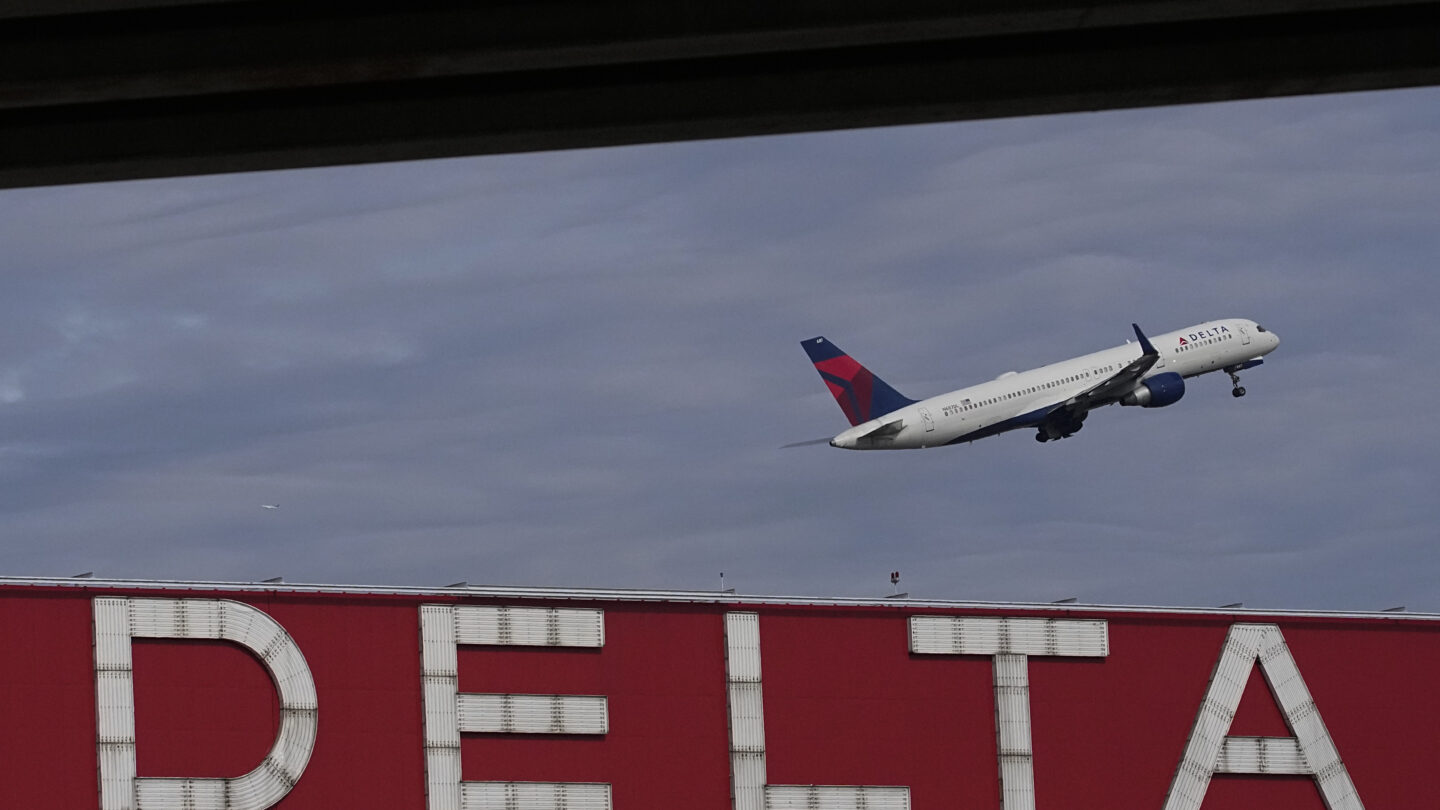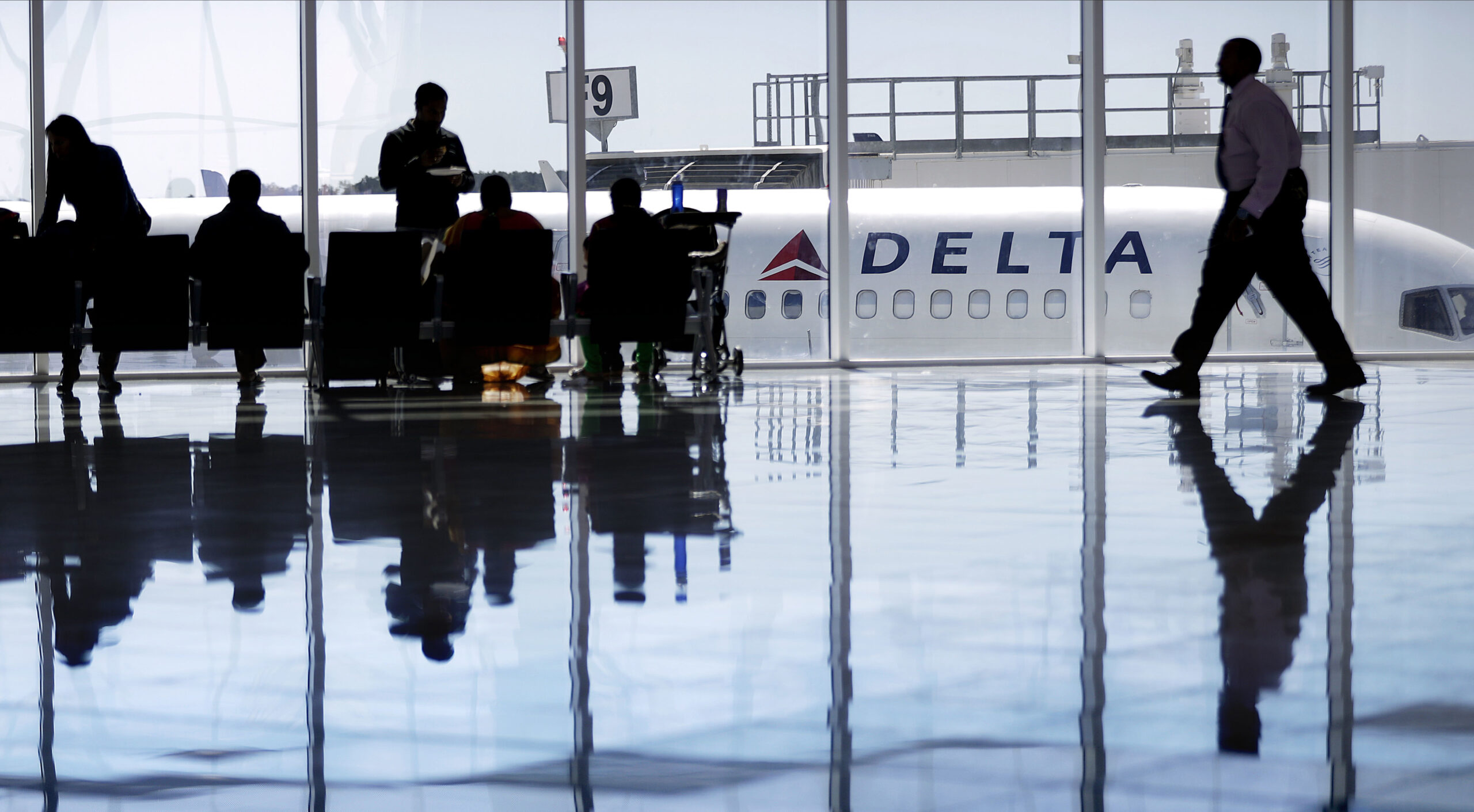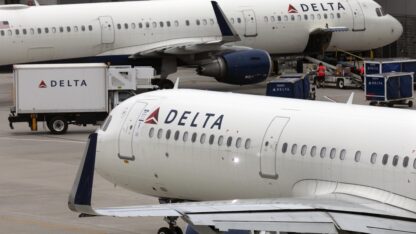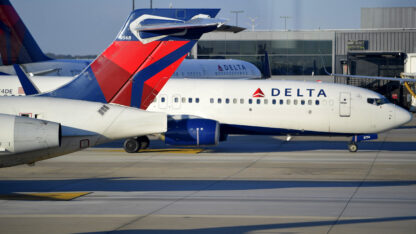Delta Air Lines reported a $363 million loss for the first quarter on Thursday, with higher spending on labor and fuel overshadowing a sharp rise in revenue.
But the airline predicted it will make a bigger-than-expected profit in the current second quarter, which includes the start of the key summer travel season.
Airlines are getting a tailwind from the combination of strong demand and limited flights, which has pushed fares higher. But investors were spooked this week when industry analysts warned that growth in airline bookings has slowed down compared with this time last year.
Delta’s CEO said it is unfair to compare current ticket sales with those from a year ago, when travel was just starting to boom as pandemic-related restrictions were lifted.
CEO Ed Bastian and other airline executives have been saying for months that travel demand shows no signs of weakening despite high inflation, layoffs in the tech industry, the failures of a couple banks, and uncertainty about the economy. They say Americans still want to catch up on travel that they postponed when the pandemic hit.
“The second quarter is looking very good. The demand picture is strong,” Bastian said in an interview. “We are looking to grow our (passenger-carrying) capacity by mid-double digits, and revenue along a similar pattern” — by 15% to 17% over the same quarter last year.
Delta’s first-quarter revenue jumped 36% from a year earlier, to $12.76 billion, with money from passengers in both economy and premium cabins and income from its refinery near Philadelphia.
Delta is the first big U.S. airline to report first-quarter numbers. The Atlanta-based carrier needs revenue to rise if it is to be profitable because costs are soaring.
In the first quarter, Delta spent 28% more on fuel than it did a year earlier, an increase of $584 million. The price of fuel could be heading higher, after OPEC and allies including Russia agreed to cut production of oil.
Delta’s labor spending jumped 20%, or $560 million — and that did not include $864 million to cover signing bonuses for pilots, who ratified a new contract with big pay raises in March. Other expenses, including aircraft maintenance and selling costs, also jumped by double-digit percentages.
Delta’s loss was smaller than the $940 million shortfall it recorded in last year’s first quarter. Excluding the cost of the pilot bonuses and other one-time items, the airline said it would have earned $163 million, or 25 cents per share. Analysts predicted adjusted profit of 29 cents per share, according to a FactSet survey.
Delta forecast that it will earn between $2 and $2.25 per share in the April-through-June quarter. That would smash analysts’ expectations — they are looking for $1.66 per share.
That, of course, will depend on a good start to the summer travel season. It promises to be a busy one, with roughly as many passengers as in pre-pandemic 2019 but not as many flights.
Flight cancellations and delays surged last summer. Airlines that were caught short on staffing last year have hired thousands of pilots and other employees. They are counting on the federal government having enough air traffic controllers.
“I think this summer should be significantly better than last summer,” Bastian said. “We’ve got another year of experience under the belts of our new employees — another year of hiring and training of our pilots to ensure they are ready for it.”
Shares of Delta jumped nearly 3% in premarket trading.









